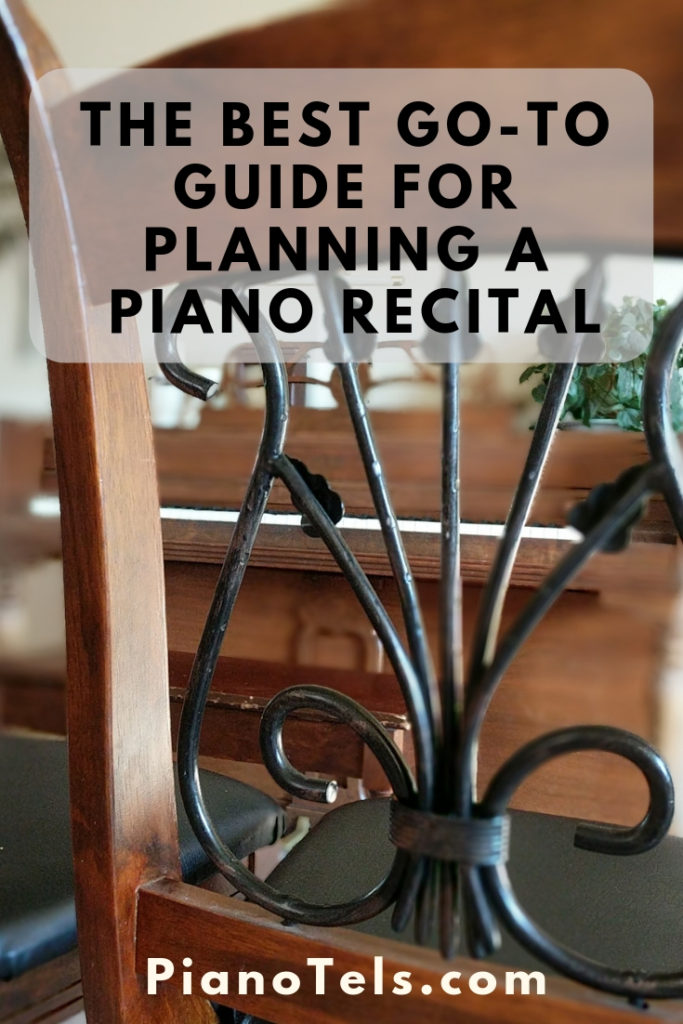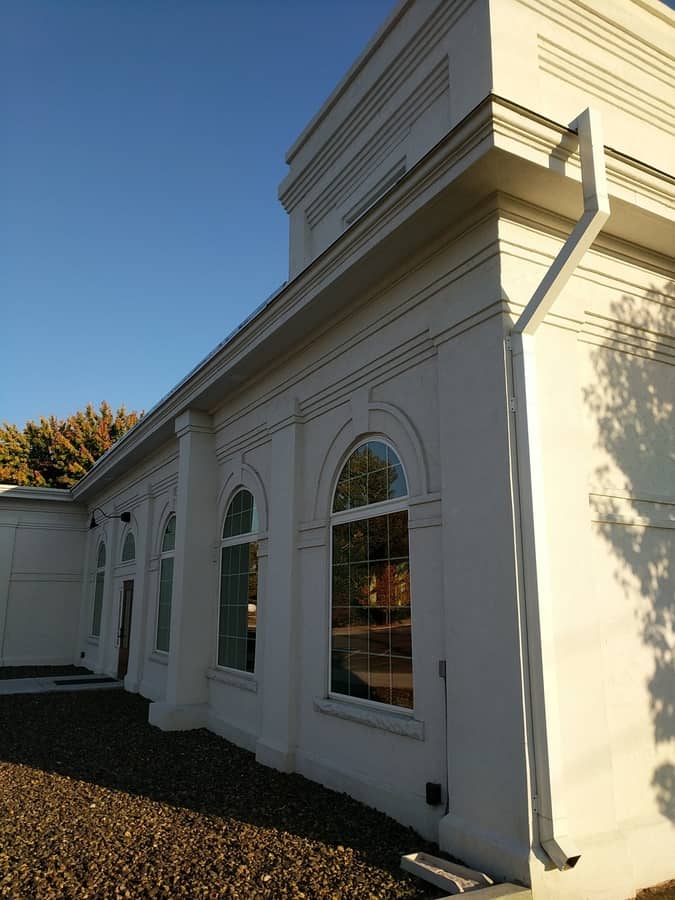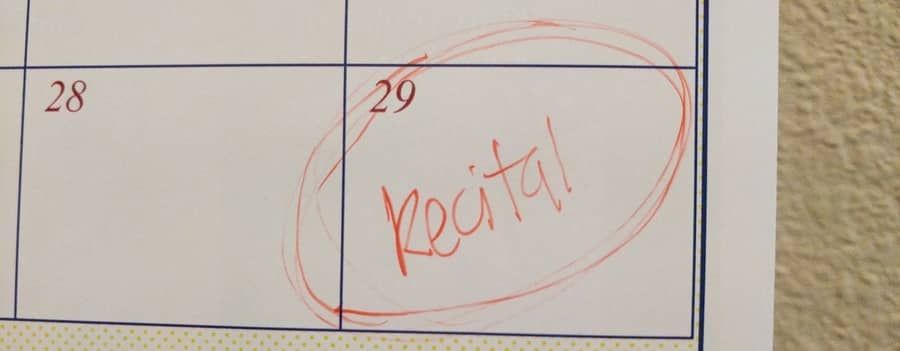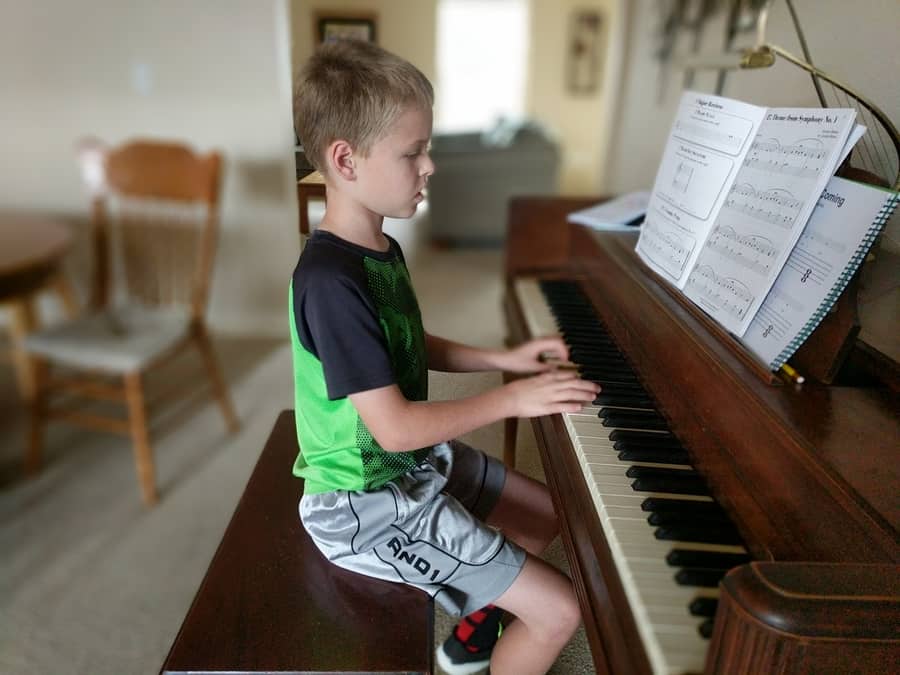
Planning a piano recital can sound overwhelming, but with this quick checklist, you will have everything in order to be ready for the big day.
Planning a Piano Recital:
- Reserve a venue.
- Set the date and invite the student and the parents.
- Choose the music that will be performed.
- Prepare students for the recital.
- Prepare awards/gifts for the students.
- Create and print a program.
- Plan refreshments.
- Arrive early to make sure all is ready for the performance.
You will want to do all you can to make sure everything is ready and prepared so that the day of the performance will go smoothly. During the recital, you will want to be able to focus all of your attention on the performances of the students instead of worrying about the logistics and the administrative aspects of planning a recital. So, with some thought and preparation, here are some additional insights and ideas into making this recital a success.
Reserve a venue.

The reason this goes first on the list of items to prepare for is because this can often be the most difficult aspect of planning a recital. Check early on the venue you desire in order to make sure it is available at the time you are looking for. This goes without saying that this is important to do several months in advance of your performance. You may be lucky in finding a place in short notice, but better not to take that chance. Here is a list of venues you could check out for a recital. I have a full article with details on these venues you can check out here if you like.
- a local church
- a coffee shop
- a theater
- a nursing/retirement home or assisted living facility
- a local music store
- a community center
- a reception center
- local piano studios
- a student’s home
- a city park
Set the date and invite the student and the parents.

Set the date and the time. A recital should try and be under an hour, if you can make that happen at all. My preferred length of a recital is 30-45 minutes. People get antsy if it’s much more than that. If possible, set a time that would be convenient for the parents and the other guests they would like to invite to attend. Invite the parents and the guests. I prefer to have a written invite to hand to the parents, or an email if you prefer. Social media platforms can be a great tool for communicating a recital as well. They will often not look at all the details until closer to the recital, and thus a written invitation is preferred so they can refer to it again. Here are some details to include in your invitation:
- Date
- Beginning and ending time
- Location name
- Location address
- Appropriate dress for students and for guests
- A recital fee and its due date (if a fee is needed for your recital)
Choose the music that will be performed.
Choose the music carefully and thoughtfully. You will want music that the student will be able to well versed in by the time of the performance. If possible, allow the student to be part of the choice so that they will have more ownership of the music. Do not allow the same song to be performed more than once during that recital. It would embarrass a student to have another student playing their same piece — especially if one student is able to play it more proficiently than the other. Choose a variety of music for a recital. Mix up the songs throughout the performance to keep the pace of the recital so it doesn’t drag on. Or pick a theme for your recital and choose music according to the theme. Decorations and dress attire can accompany a theme, if you so desire. Themed recitals can be a lot of fun and add a good dose of motivation and entertainment for all involved.
Prepare students for the recital.

A recital can be one of the most rewarding aspects of a piano student’s life, or if done poorly, it can be one of the worst experiences of a student’s life. I have experienced both. Recitals that went terrible are hard to get over and it shook my confidence for years. Student preparation is key for the success of the recital. In the end, it shouldn’t really matter what you think about the recital, but how the student felt about the recital and their performance. Give the student plenty of time to practice. They should know the piece well enough to have it memorized. You can decide whether or not you will allow them their music. Sometimes they just need it for moral support or just for the comfort of referring to it if need be. Prepare a student as to what is expected during the recital. Give them the opportunity to have a dress rehearsal at the venue or at the very least, during a lesson previous to the recital. Practice what to say and where to stand when they say it, how to bow, what side of the stage to enter and exit, etc. Encourage the student to practice performing in front of as many people as they can to help them become more comfortable with being the center of attention. Offer advice on how to deal with performance anxiety.
Prepare awards/gifts for the students.
I consider a recital a time to celebrate the accomplishments of the students. In that regard, I prefer to always have a gift or certificate of some sort to give them at the end of the performance. Depending on the setting of the recital, some gifts may be more appropriate for certain settings. Here are some thoughts of awards and gifts to give the students at the conclusion of the piano recital:
- a trophy w/free engraved plate (see one here for $14.99)
- a music medal with neck ribbon (see one here for $5.99)
- an award ribbon (see an example here for $14.99/50 ribbons)
- a long stemmed rose
- a certificate of accomplishment (can make for free on google docs)
- a candybar with a hand written note from you
- a framed picture of the student in front of the piano
- a plaque with their name (see one here for $7.59)
Create and print a program.
I consider some type of program to be absolutely necessary for every recital. It doesn’t have to be fancy, but must include the date of the piano recital, a title, and the performer’s name, music being performed, and the order of performance. Having the performers listed in order will allow for the program to go smoothly as it clears any confusion about who goes next. The program also allows for a memoir of the event as a keepsake so make sure to make enough copies for each of the students, their parents, and a few extra just for good measure.
Your program will be the agenda you can use to conduct the recital.
At the beginning of the recital welcome the students and their guests. I always find this a great time to give a tribute to my students and how proud I am of their hard work and accomplishments. Of course, every student needs the support of their parents and I find it tasteful to express appreciation for the parents as well at this time with applause. The program can go as written. At the end of the program, you can award the students with the gift or token of acknowledgement that you have for each of them. Invite each of the students to the front of the audience to receive their award. Hand out each award and then with all the students standing with their gift/award, the audience and clap one more time for their talented kids. Be sure to allow this to be a photo opportunity for each of the parents as well. (Make sure you have someone to grab that photo for you as well!) This is a good way thank your students, conclude the performance, and invite them to enjoy the refreshments.
Plan refreshments.
Although not necessary, refreshments are preferred for my recitals. It shows some appreciation towards the students and their parents and guests. Refreshments provide an environment for people to stay and linger. This will allow you to get a feel for how the parents and the students felt about the performance and will also allow you a rare opportunity to network with the parents of your students. Its a great time to get to know them better and to establish a better relationship. Ideas of refreshments:
- Cookies — Costco provides a platter of cookies that would be simple to buy
- Cake — consider a decorated “piano” cake to display and then cut up for eating
- Chocolate fountain with variety of fruits
- Fruit such as grapes, apples, and strawberries and cut up cheeses
- Rootbeer floats
- Italian sodas
- Popcorn and soda for a more informal recital
Don’t forget to bring napkins, plates, utensils, and cups and/or bottled water or drinks. Consider having a volunteer to manage the refreshments so that you can be free to mingle with the parents and the students.
Arrive early to make sure all is ready for the performance.
Before you leave, check to make sure you have everything you need:
- Copies of the program.
- Any music the students may need.
- Awards/certificates for the students.
- Refreshments.
- Paper goods for the refreshments.
- Tables and table cloths, if needed, for the refreshment table and the awards table.
- Microphone or any sound system, if needed.
- Video recording equipment, if desired.
Arrive to the venue with plenty of time to make sure all is ready in time.
- Set up or rearrange chairs if need be.
- Arrange the piano.
- Set up a refreshment table and place refreshments on it with any paper goods needed.
- Set up a table for the awards to be placed upon.
- Place the programs in an area close to the entrance.
- Set up a microphone if you need one. Test sound.
- Adjust lighting.
- Set up video recording, if the performance will be recorded.
- Save a seat with a good view for someone to take pictures for you
At this point, you can let the recital begin! Sit back and enjoy it. This is the time when your students shine and you finally get some payback for all that hard work! Be ready to dish out as much sincere praise as you can think of at this point. The students need a hefty pat on the back for all their hours of practice and preparation as well, so thoughtful praise is well needed before and after a recital. Here are some ways to praise your students beyond the “good job”:
- Way to keep that strong, rhythmic beat in that performance!
- You had that song mastered!
- All that hard work you put into that song, especially ____, really paid off!
- You practiced that song so well you made playing the piano look easy!
- You played so well, that your performance was just like listening to a story.
- Your performance made we want to sing/dance along. You wrapped me in so much that I tapped right along.
- Your song was so beautiful. It touched me.
- You nailed it!
- That was a tough song, but you kept working at it and you got it!
- You played that song even though it was challenging, and you didn’t give up.
- When you played the first measure, you grabbed my interest and kept me enthralled.
- I really appreciate how well you presented yourself up there with confidence.
- Your song made me sit on the edge of my seat, waiting for what was going to come next.
- The way you transitioned from one movement to the next in that piece was spot on.
- Your performance was such a pleasure to listen to.
After a Recital
In the coming week after the recital, send a thank you to your parents and to the students. Include pictures of the recital. Your parents will appreciate any pictures you were able to get that they may not have been able to catch themselves. If you took a recording, figure out how to get it to the parents via YouTube or creating a DVD. If you had any extra help, send a thank you card. A venue will be that much more likely invite you back if you send them a thank you card after the recital as well.
Get feedback.
Take time to talk through the recital with your student. See what they felt good about and what they felt like they didn’t do well. Hear what they have to say. Don’t make them feel foolish for what they thought of themselves. Value what they say, and then tell them how you felt using “I” statements. Don’t accuse them or undervalue their own opinion, but feel free to express your thoughts and feelings constructively. I like to ask them the following questions to get a good feel for what they thought of the recital and their performance:
- On a scale of 1-10, how did you feel you performed at the recital?
- In one word, how would you describe the recital?
- What did you feel that you did really well?
- What do you wish you could have changed about the recital and/or your performance?
This kind of feedback helps you to evaluate how to help the student for future recitals. I keep these feedback forms in a folder so we can pull them out for the next recital to see what they feel they need to do to prepare next time. Experience is a great teacher, and using their own feedback for their own preparation for next time will be highly motivating and valuable to them. A recital is also a good time to get parent evaluations. Feedback is a gift and we can take their responses to help us improve and make our program more what suited to the needs of the students and the parents. Thoughts on what to ask for an evaluation:
- On a scale of 1-10 how satisfied are you with your student’s piano lessons?
- What have you valued in your child’s piano lessons?
- What do you wish would be different about your child’s piano lessons?
Ways to send out an evaluation:
- A google form can be used in a link sent to an email and could be made anonymous.
- A simple questionnaire can be handed to the parents after a student arrives to a lesson and completed during the lesson
- An email with questions to be replied to
Tel loves her life as a piano player, a piano teacher, and a mom. Amid piano blogging, piano teaching, and piano playing, she loves a chance to fit in a good exercise class, volunteer at her kids’ school and at her church, and go on long dates with her husband. Full bio at About Tel.




